Finding the Best Early Childhood Education for Your Child
There are lots of wonderful early childhood education programs around the Main Line! Learn about their different missions and philosophies to find the best fit for your child during these magical years.
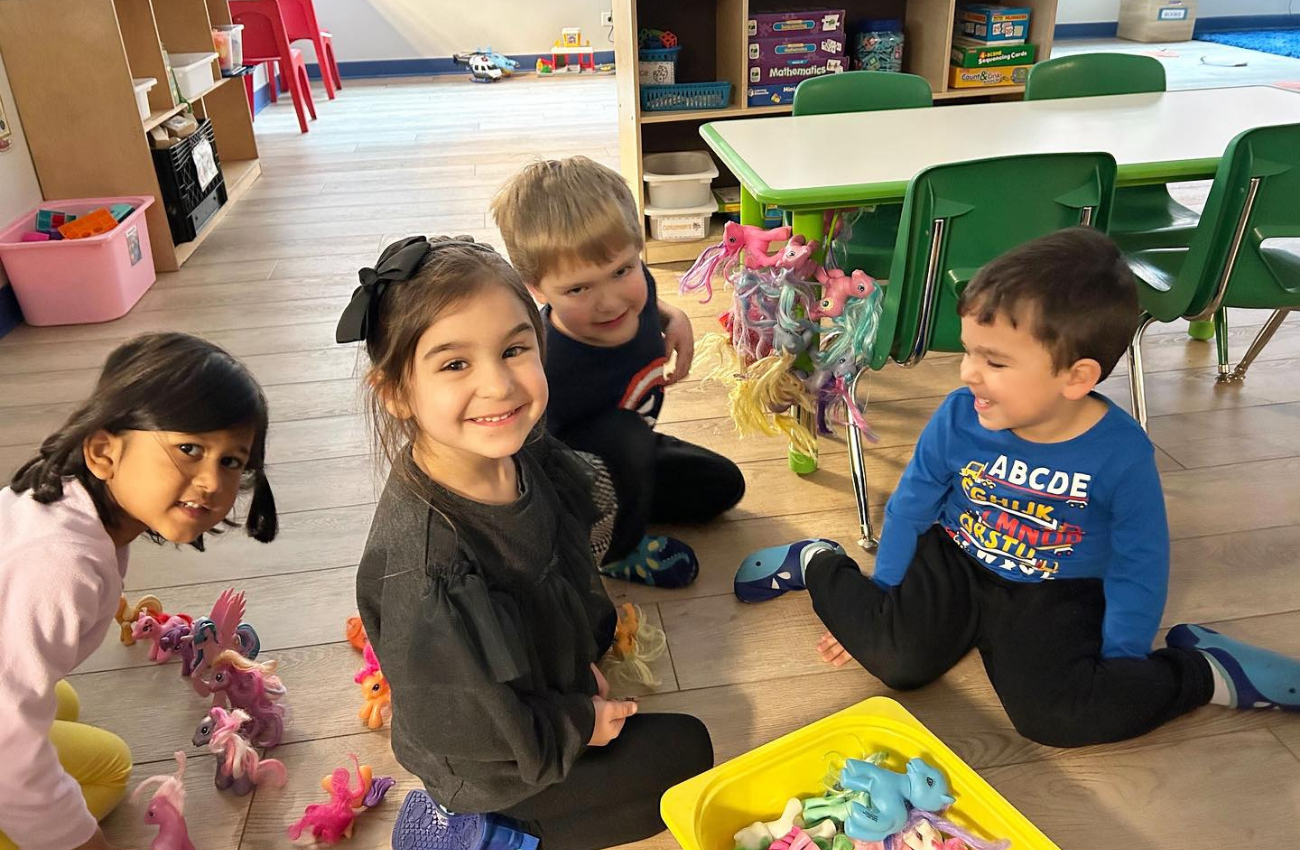
If you’re just setting out to find a preschool for your little one, there are many factors to consider. Your child’s early education will be a formative and magical time, so for parents, picking the right place is a combination of head and heart. Obviously a preschool must be reasonably close to home, have all the required licensing, and work within your budget. Beyond that, however, the right fit becomes a matter of the program mission, philosophy, curriculum, environment, teachers, and of course, your family values.
We’re lucky around the Main Line because there are so many wonderful early childhood education programs for our children! Parents have an array of choices in programs from play-based, faith-based, Waldorf, and Montessori to language-immersion, literacy-focused, and more. To familiarize you with the landscape, we’ve described below a handful of different approaches to early childhood education. And within those categories, we’ve highlighted some excellent, local schools to consider.
Playing to Learn: Progressive, Play-based, and Nature-based
The Progressive education philosophy emerged in the early 20th century as a child-centered, inquiry-led, and play-based curriculum. It’s an enduring educational philosophy based on the idea that children learn by doing. The tradition also advocates that early childhood should be a time of child-led exploration supported by caring adults. Although they may not be designated as “Progressive”, many play-based preschools — and nature-based — stem from this this tradition.
Progressive Early Childhood Education
Founded in 1932 on the Progressive Education model, the The Miquon School continues the tradition with child-centered and inquiry-led education in Conshocken. At this pre-K through 6th grade school, teachers strive to meet the developmental needs of every young child, so that they are able to self-initiate and ask questions. In this way, children drive their own discovery and, most importantly, learn to propel their own education.
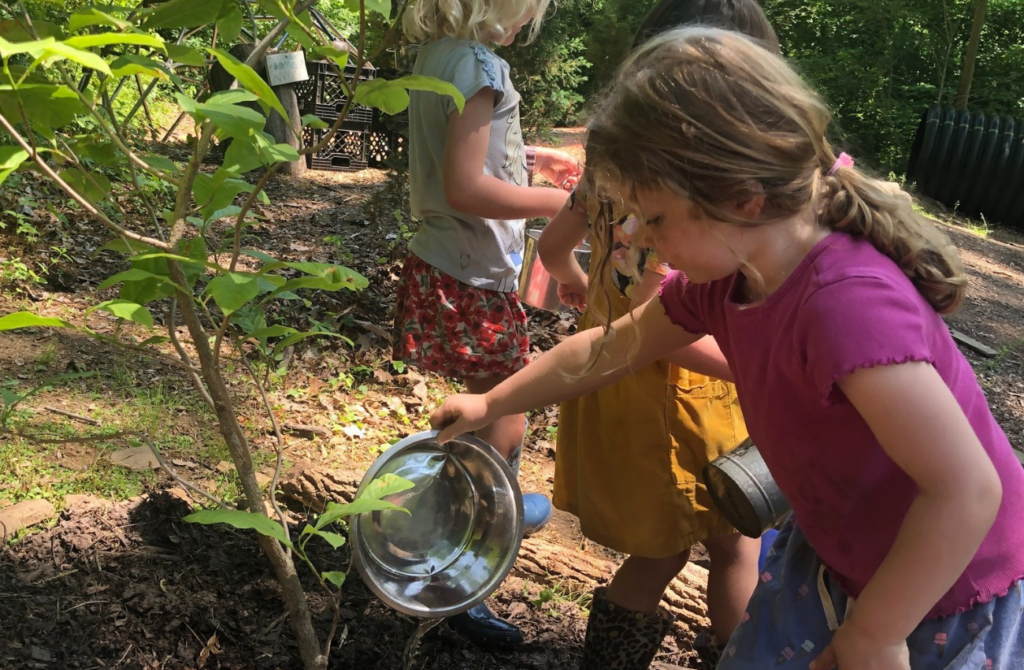
Play-based Early Childhood Education
For nearly 60 years, Trinity Preschool of Berwyn has been an inclusive, caring community where children and their families develop and grow together. Theirs is a non-denominational early learning center for, children ages 16 months through pre-K. Children experience hands-on, creative, and play-based learning. Their facility features intentionally designed classrooms, a state-of-the-art outdoor playground, nature center, and a large indoor playground for active play all year round.
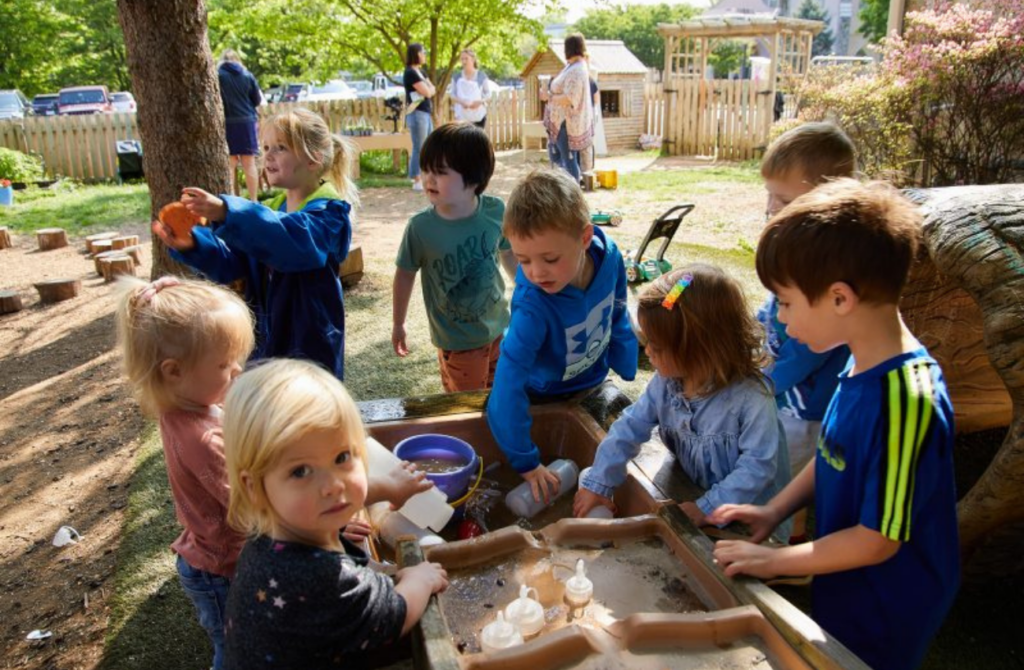
Using a play-based education model, the Phebe Anna Thorne School of Bryn Mawr College celebrates early childhood. Based on research, the Thorne School staff believe play “enhances children’s problem-solving and social skills, leading to more curious, independent, joyful learners.” Their school offers traditional programs for toddlers, preschool and Kindergarten, as well as specialized programs for children with speech language needs. Discover more about this school and their program in Learning to Play and Playing to Learn at Phebe Anna Thorne School.
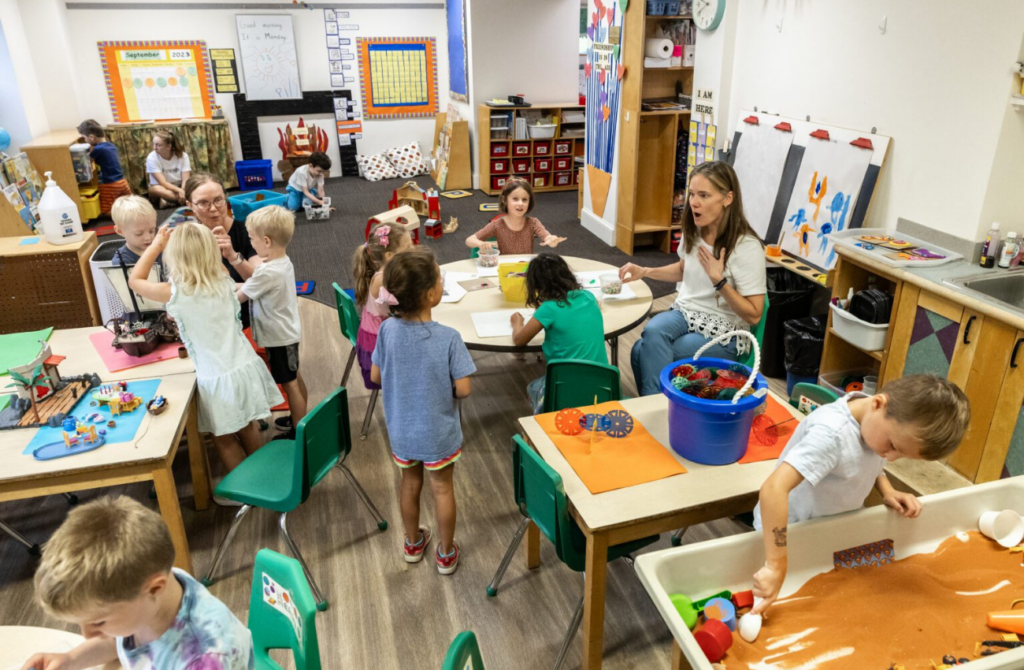
Nature-based Early Childhood Education
Wouldn’t it be great if your child spent a few hours playing outdoors every day? Busy, working parents can’t always get outside with their kids, but a nature-based early childhood education can fill the gap by immersing children in the natural world on a daily basis. It encourages a hands-on exploration of nature, a sense of wonder and curiosity, and most importantly, the freedom to run and play.
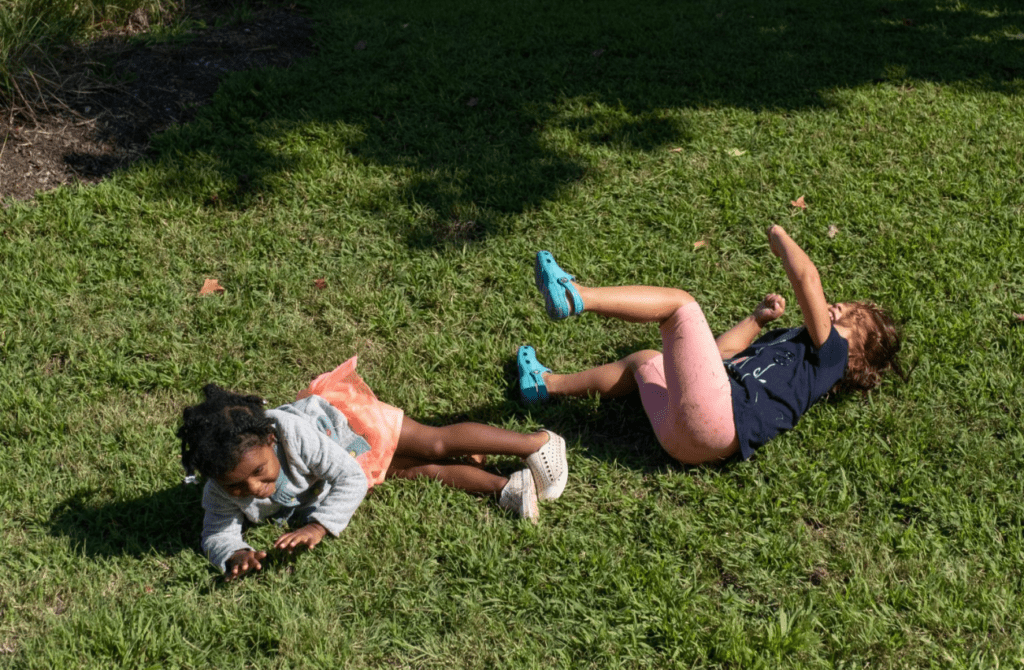
Centered around nature and the outdoors, Friends’ Central School’s Nature Nursery builds organic opportunities for learning, child-led exploration, and unstructured play into the daily curriculum. As children move into Pre-K and Kindergarten, outdoor and play-based learning remain central, but teachers begin to incorporate more concrete pre-literacy and academic skills. Through these kinds of learning adventures, Nature Nursery and the Early Childhood Program at Friends’ Central nurture the wonder and curiosity that is inherent in young children. In this safe and natural environment, children can ask questions and explore their world.
Creative Curriculum
You might be surprised, but the YMCA of Greater Brandywine is one of the largest providers of childcare and early childhood education around the Main Line. More than just babysitting, the YMCA follows a research-based, Creative Curriculum, which focuses on hands-on experiences and learning. Teachers are credentialed and provide a warm supportive environment for exploration and discovery as a way of learning. And with all the sports and fitness activities that go on at the YMCA, parents may add swim lessons, gymnastics, and other classes to their child’s day. With eight locations in our area, it’s super convenient, especially for parents who also want to work out!

Montessori
Montessori schools are based on a child-led method of teaching, developed a century ago by Dr. Maria Montessori, an Italian physician. The Montessori method of early childhood education emphasizes independence, hands-on learning, and individualized instruction. It was revolutionary for its time and still informs preschool curriculums today.
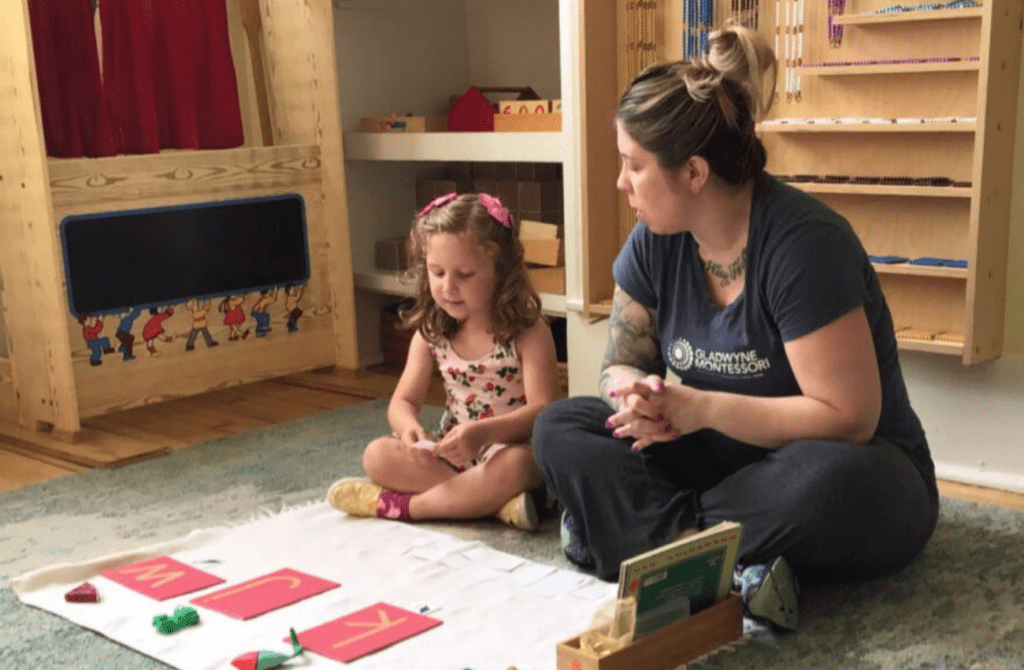
Since 1962, Gladwyne Montessori has rooted its curriculum in the Montessori method, while also incorporating modern, research-based developments in childhood education. The school serves children as young as six weeks of age, up through age 12. For infants and toddlers, their team of educators specialize in early childhood development. Working within a peaceful setting, teachers “strive to connect, predict, and serve each child’s needs and temperament by following a child’s natural rhythms.” For children ages 3 to 6 years old, Gladwyne Montessori offers the Primary program with multi-age classrooms. Individuality is celebrated and classrooms brim with hands-on materials specifically designed for the development and cognitive growth of children this age.
Waldorf Early Childhood Education
Waldorf schools are based on the teachings and principles of Rudolf Steiner (1861–1925), a German educator, lecturer, and philosopher. In essence, a Waldorf education emphasizes an arts-integrated curriculum that focuses on educating the whole child — head, heart, and hands. With this approach, students learn through creative activities like storytelling, music, art, and practical skills.
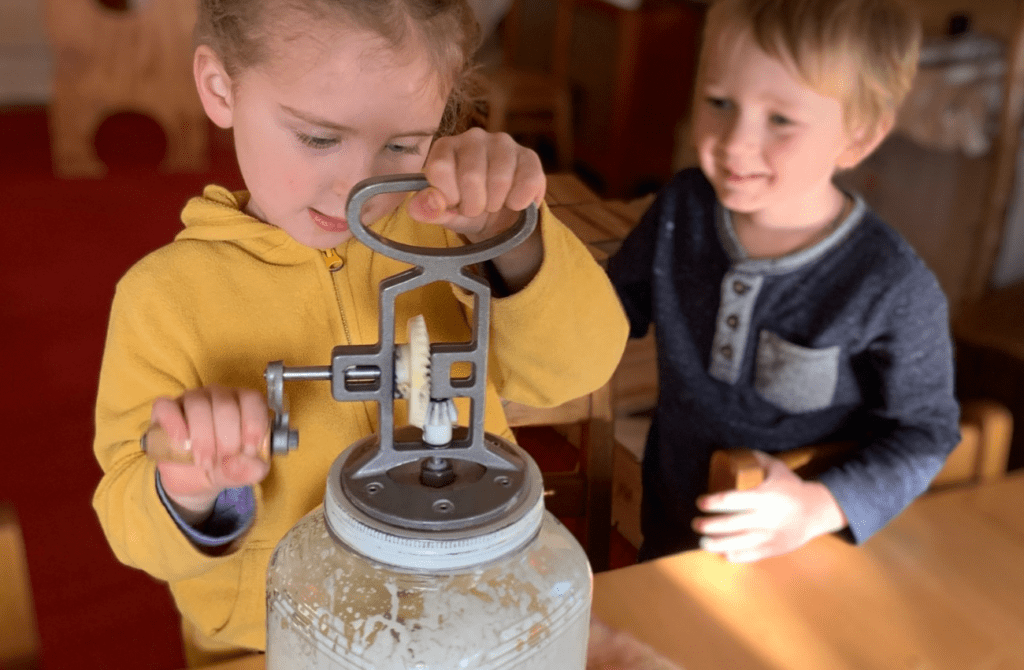
Maintaining this unique curriculum is the Kimberton Waldorf School, the second oldest Waldorf school in North America! Located on 430 acres in Chester County, KWS is a pre-K through grade 12 school that nurtures the development of young children in its Rosebud Garden Preschool and Kindergarten. Their early childhood teachers strive to preserve the innocence and innate wonder of early childhood with imaginative play and hands-on activities in an inviting, joyful environment. Their preschool and Kindergarten classrooms, filled with wooden toys, cloth dolls, natural-dyed fabrics, and other natural playthings, are especially appealing to parents in a tech-filled world of screens and devices.
A Faith-based Early Childhood Education
If you’re a family that follows a faith tradition, you may want your child’s early childhood education to include those teachings. Around the Main Line, there is a long tradition of Christian and Jewish private schools with excellent academics. And many of these offer programs for the youngest of students.
Christian
The stately old stone buildings and beautiful property of the Waldron Mercy Academy, are hard to miss on Montgomery Avenue in Bala Cynwyd. Based in the Sisters of Mercy Catholic tradition, this Pre-K through eighth grade school has been around for 100 years. What’s unique about Waldron’s early childhood education is that it offers both a Montessori and a non-Montessori, early childhood track. Fundamentally, Waldron bases its early childhood track around purposeful lessons and the idea that learning should be fun. Accordingly, children engage in hands-on activities, dramatic play, games, a good amount of jumping around, as well as a daily celebration of God’s gifts.
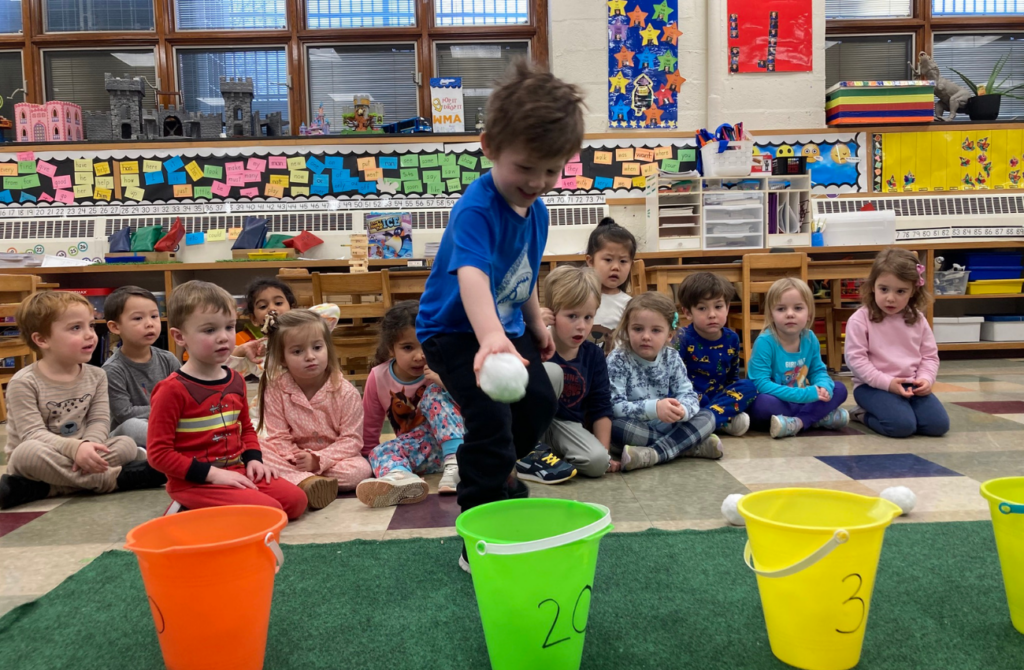
Founded in 1785, in Newtown Square, The Episcopal Academy offers a Pre-K through 12 education that “challenges and nurtures Mind, Body, and Spirit.” With an eye on future academics, their preschool program includes simple math concepts like counting and shapes, and foundations of literacy such as alphabet study and story times. The program also includes music, movement, puppetry, traditional folk songs, art and printmaking, Spanish, and much more. Religion takes the form of Chapel. This is a community experience in the Episcopal tradition that is part of even the youngest students’ curriculum.
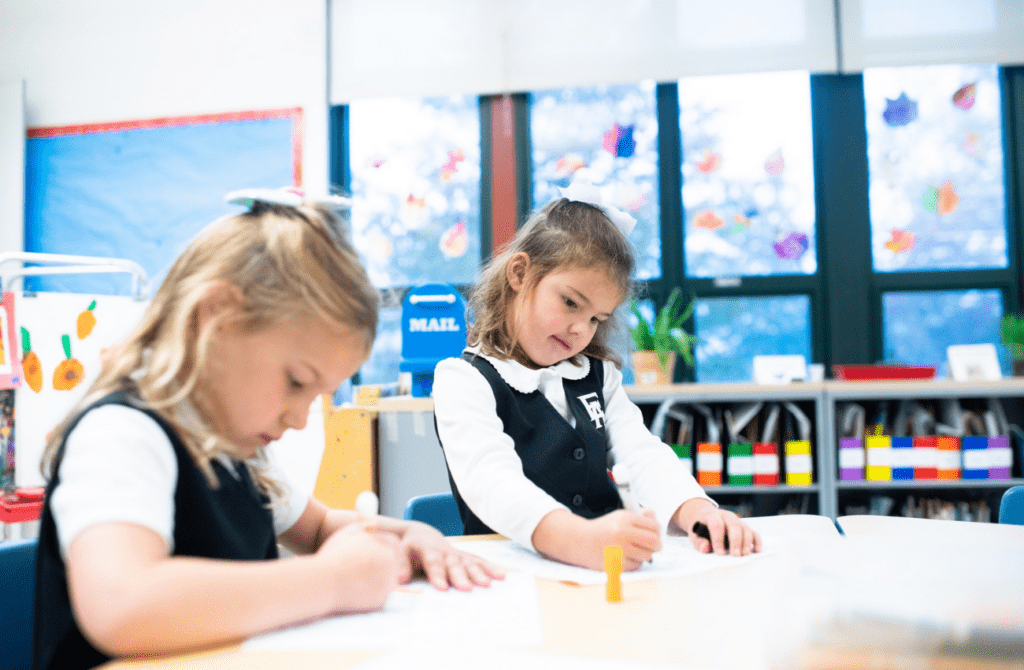
Jewish
The Perelman Jewish Day School serves children ages Pre-K through 5th grade at two locations: Wynnewood and Melrose Park. Perelman’s Junior Kindergarten in Wynnewood offers a full-day, Hebrew-immersive program at an age when they are most receptive, easing the acquisition of additional languages in the future. Their progressive education program is grounded in active, hands-on learning and play in a warm, close-knit setting specially designed for ages 4 and 5. Judaism is the lens through which they develop social skills, as well as appreciation and gratitude for our daily gifts.
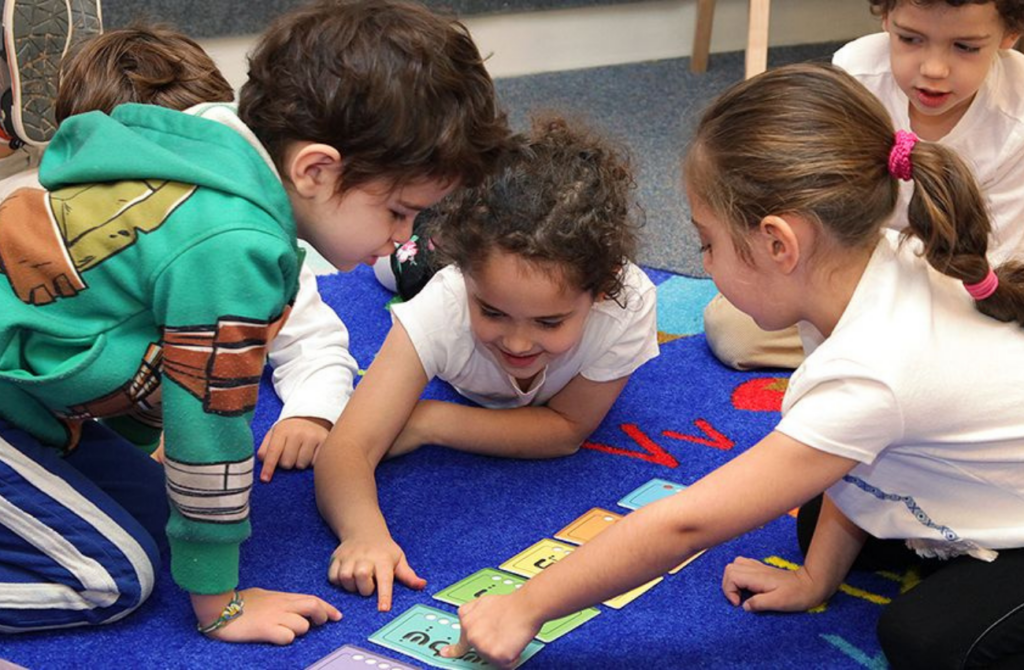
Quaker
Quaker schools as a whole have an excellent reputation. A Quaker education emphasizes the development of the whole person, fostering community, social justice, and a commitment to lifelong learning.
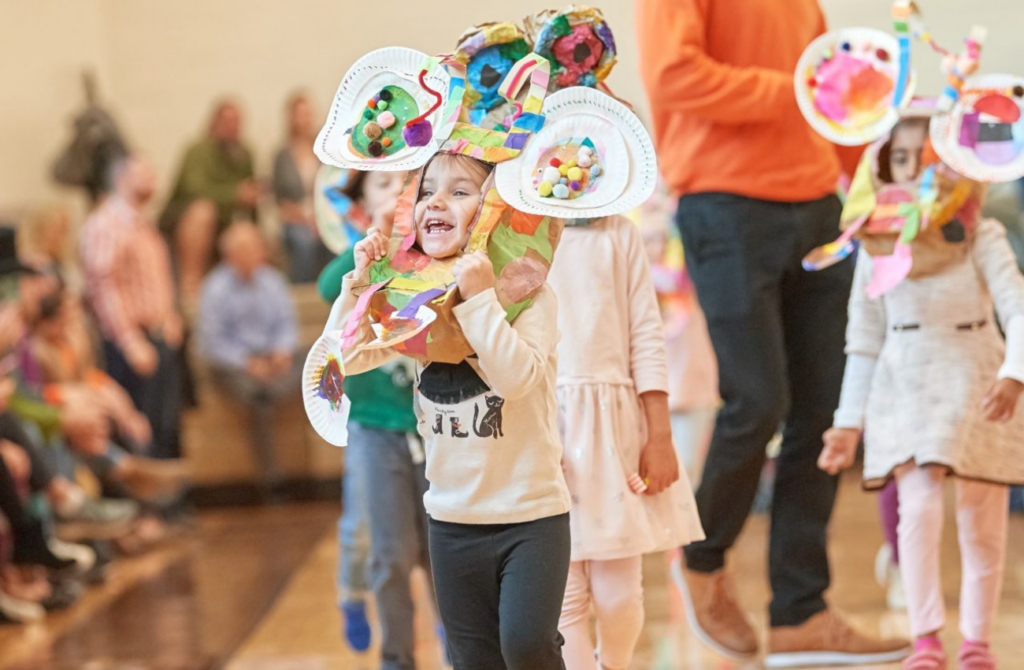
The Westtown School in West Chester certainly reflects the Quaker tradition. Its core curriculum is built on the idea that every child has unique gifts to contribute and that children learn best through action and collaboration. Their early childhood education program, called the Primary Circle, comprises both pre-K and Kindergarten. Supported by research, the mixed-age classroom encourages more socialization, leadership, engagement with their teachers, and conflict resolution.
Language Immersion
According to the U.S. Census Bureau, there were approximately 43.5 million native and second-language Spanish speakers in the United States as of 2019! So whether your family speaks Spanish or not, it’s a huge benefit for kids today to learn the language. With a Spanish Immersion preschool program, children develop fluency and proficiency in the Spanish language at an early age. It also fosters cultural understanding and provides a strong foundation for future language learning.
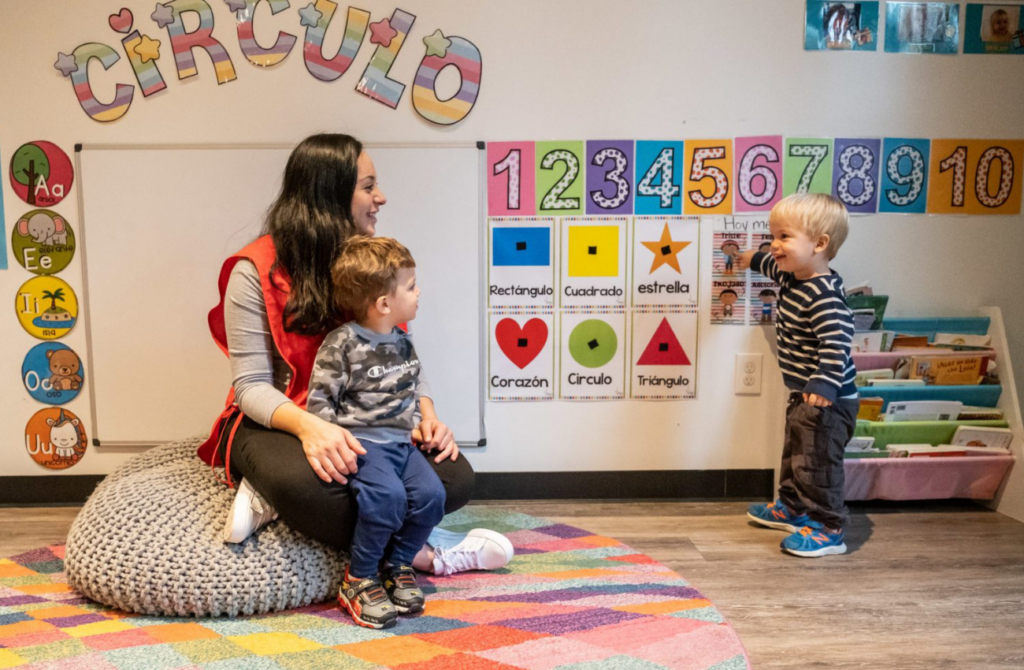
At Mi Casita in Ardmore, preschool activities are conducted in Spanish, using the Creative Curriculum and project-based learning as foundations. Providing authentic cultural experiences, crafts, reading, games and more, Mi Casita educates young students through fun and engaging activities.
Literacy-based Early Childhood Education
If you want to give your child a jump on reading and writing, consider a literacy-based preschool program for young children.
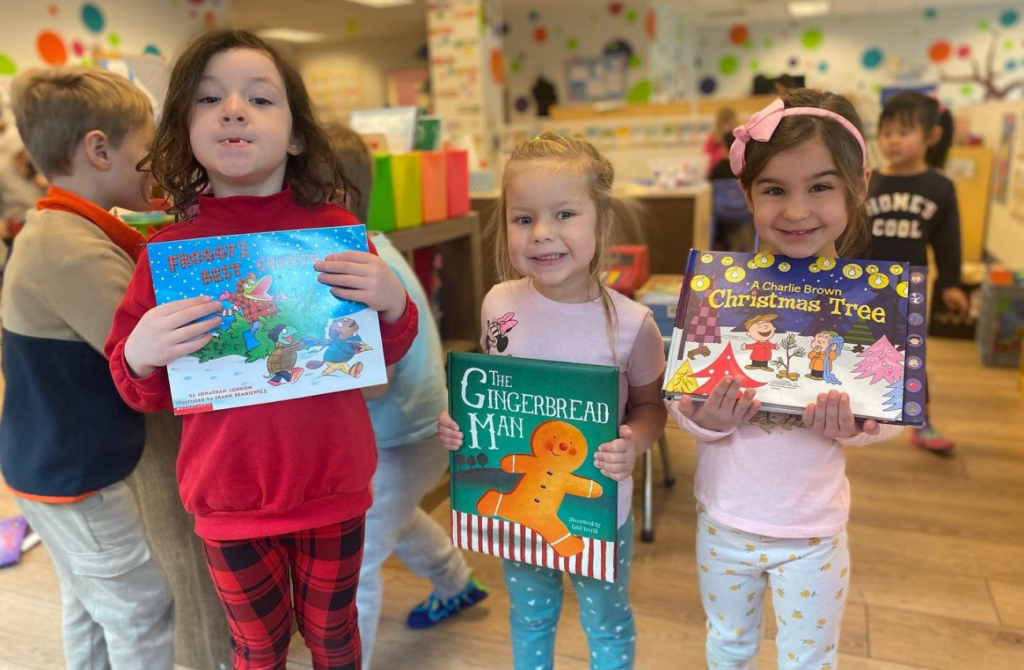
Founded by local mom, Angela Bruno, Bright Minds Preschool of the Main Line (formerly Kids’ Clubhouse) focuses on early literacy for children ages 2–5 . Their Beginners program encourages children to verbalize their needs, increase vocabulary, and develop gross motor skills through games and outdoor play. In their Preschool and Pre-K curriculums, teachers introduce writing using the Handwriting Without Tears program. And at all levels, children engage in hands-on activities to help them grow physically, socially, and cognitively. Although it’s only been open for less than five years, Bright Minds Preschool has won a Main Line Parent LOVE Award for four years in a row!



NO COMMENTS